
support@yorubalibrary.com
+2348073529208, 07038599574

The Osun-Osogbo Festival is one of the most prominent and celebrated traditional festivals in Yoruba culture. Held annually in Osogbo, the capital of Osun State in southwestern Nigeria, this festival is a spiritual event dedicated to the river goddess Osun. It attracts thousands of devotees and tourists from around the world, highlighting the rich cultural heritage of the Yoruba people.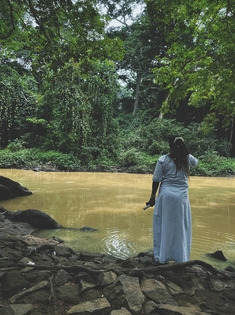
Origins and Significance
Mythological Roots
The Osun-Osogbo Festival is rooted in Yoruba mythology. Osun, one of the Orisha (deities) in Yoruba religion, is revered as the goddess of fertility, love, and the Osun River. According to legend, Osun played a pivotal role in the founding of Osogbo, providing water, fertility, and prosperity to its people. The festival honors her contributions and seeks her continued blessings.
Cultural Importance
The festival is not only a religious observance but also a celebration of Yoruba identity and culture. It reinforces community bonds and preserves the traditional practices and beliefs of the Yoruba people. The Osun-Osogbo Sacred Grove, where the festival is held, is a UNESCO World Heritage site, recognized for its cultural and spiritual significance.
Key Events and Rituals
Iwopopo (Procession of the Kings)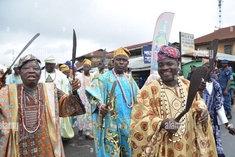
The festival begins with the Iwopopo, a grand procession that involves the Ataoja (king) of Osogbo and his chiefs. This event marks the official commencement of the festival, symbolizing the purification of the town and the renewal of its people’s commitment to Osun.
Olojumerindinlogun (Sixteen-Day Worship)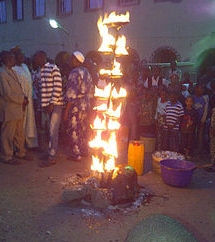
The festival spans two weeks, with various rituals and activities each day. The Olojumerindinlogun is a period of intense worship and devotion, where priests and priestesses perform daily rites to honor Osun. These rituals include offerings of food, music, and dance, reflecting the deep spiritual connection between the devotees and the goddess.
Arugba (The Virgin Carrier)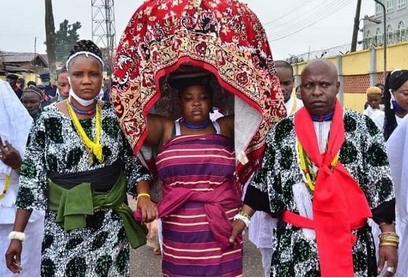
One of the most significant events of the festival is the Arugba ritual. A virgin girl, chosen from the royal family, carries a sacred calabash filled with offerings to Osun. The Arugba, symbolizing purity and continuity, is accompanied by a procession of priests, devotees, and spectators as she makes her way to the Osun River. This ritual is believed to bring blessings, protection, and prosperity to the community.
Osun-Osogbo Sacred Grove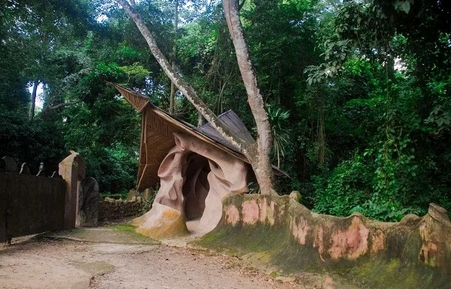
The festival's climax occurs in the Osun-Osogbo Sacred Grove, a forest sanctuary dedicated to Osun. The grove is filled with shrines, sculptures, and artworks that honor the goddess. Devotees gather at the riverbank to offer prayers, sacrifices, and to seek Osun's blessings for fertility, health, and success. The sacred grove is a place of spiritual renewal and cultural heritage, representing the harmonious relationship between humans and nature.
Cultural Performances and Celebrations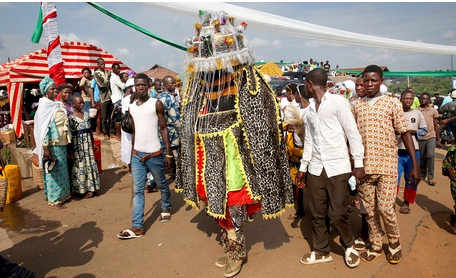
Throughout the festival, there are various cultural performances, including traditional music, drumming, dancing, and theatrical displays. These performances showcase the rich artistic heritage of the Yoruba people and provide entertainment for both locals and visitors. The vibrant costumes, rhythmic music, and energetic dances create a festive atmosphere, celebrating the unity and diversity of Yoruba culture.
Modern Relevance and Global Recognition
Tourism and Economic Impact
The Osun-Osogbo Festival has grown beyond a local religious celebration to become a significant cultural event attracting international attention. Tourists from around the world visit Osogbo to experience the festival, contributing to the local economy and promoting cultural exchange. The festival provides a platform for showcasing Yoruba culture on a global stage, enhancing its visibility and appreciation.
Preservation of Cultural Heritage
The recognition of the Osun-Osogbo Sacred Grove as a UNESCO World Heritage site has helped in preserving the cultural and spiritual heritage of the Yoruba people. Efforts to maintain the grove and the festival ensure that future generations can continue to experience and participate in these traditional practices. The festival serves as a vital link between the past and the present, keeping Yoruba traditions alive in a rapidly changing world.
Contemporary Adaptations
While the core rituals and traditions of the Osun-Osogbo Festival remain unchanged, there have been contemporary adaptations to accommodate modern audiences. Innovations such as the use of social media for promotion, inclusion of educational workshops, and collaborations with artists and cultural organizations have helped in expanding the festival's reach and relevance. These adaptations ensure that the festival remains dynamic and inclusive, attracting a diverse range of participants and spectators.
Conclusion
The Osun-Osogbo Festival is a testament to the enduring spiritual and cultural heritage of the Yoruba people. It is a celebration of the goddess Osun, a reflection of Yoruba mythology, and a showcase of traditional art, music, and dance. Through its rituals, processions, and cultural performances, the festival reinforces community bonds, preserves ancient traditions, and promotes cultural exchange. As it continues to attract global attention, the Osun-Osogbo Festival stands as a vibrant symbol of Yoruba identity and cultural pride.

Learn about the Yoruba concept of Ìwà Pẹ̀lẹ́ (good…

Learn special praises for Divine Being and Creator…